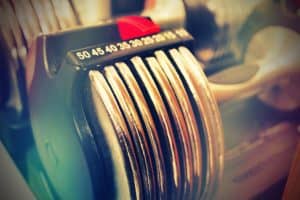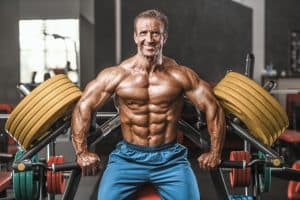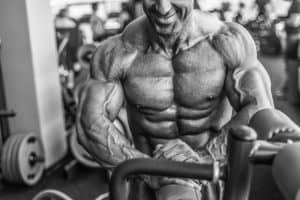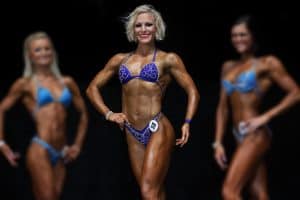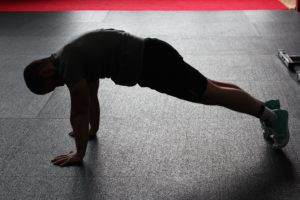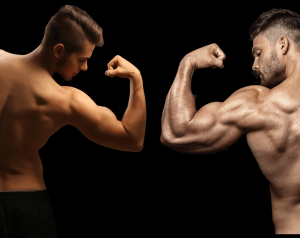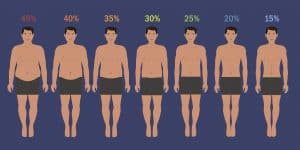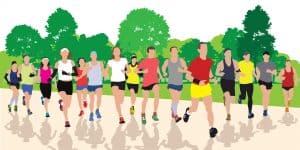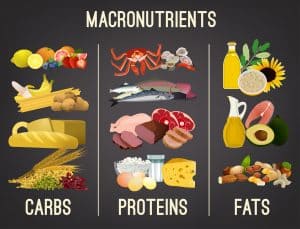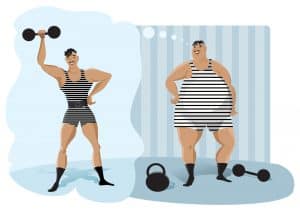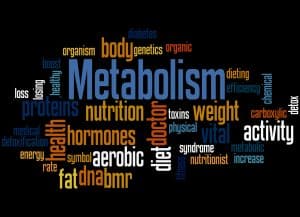Are you thinking of making a change to veganism? I applaud you! This is a brave step towards combating animal cruelty and environmental issues, as well as improving your own health. Or maybe you already follow a vegan diet and want to know if building muscle on a vegan diet is possible.
Many people slam veganism for its lack of protein and nutrients. I’ll tell you this now—these people are wrong. Eating a balanced diet and building muscle on a vegan diet is entirely possible in a healthy way.
Take myself, for example. Once I made the change to veganism to better our world and my own health, I was not disappointed by my results! I felt more revived, energetic, and ready to take on my gym regime each day, and my results weren’t hindered by my vegan choices.
Today, we’ll be letting you in on the secrets of veganism to help you build muscle on a vegan diet. We’ll tell you the benefits and risks of it, as well as what foods you can eat, providing you with some meal plan ideas. David Haye and Venus Williams have done it, so why can’t you?
What is it like to be on a Vegan Diet?
Vegan (or plant-based) is a type of diet and lifestyle that a lot of people love to hate. It significantly limits the foods you are able to consume, by removing meat, fish, and dairy products from the list.
Most vegans even avoid anything which inherently harms living beings in the process. This could include beauty and hygiene products tested on animals, or clothes made from leather or wool. Honey is also on this list, as the process is potentially exploitative for bees.
Considering the amazing benefits a vegan diet has on our dying world, it’s no surprise that the number of followers is increasing rapidly as the years go by. Despite the constant backlash veganism often receives (thanks Piers Morgan), it’s actually becoming a really popular trend in the muscle and fitness community.
In fact, statistics show that veganism is ever-rising, with JustEat figures showing a 987 percent rise in vegetarian/vegan orders in 2017! Pretty amazing, right?
I’m constantly looking for new ways to reduce my environmental impact. Just because you’re a bodybuilder, doesn’t mean you can’t save the world too! Perhaps veganism is the way to do it?
Benefits and Risks of Consuming a Vegan Diet
I guess now would be a good time to break down the personal benefits and risks of the vegan diet for you. After all, we want to make sure you’re the most informed you can be before taking the plunge.
Benefits
- This is a diet high in fantastic nutrients, which you may not otherwise achieve from a standard diet.
- It provides you with a new outlook on food, so you can get creative and experiment with new ways of thinking about cooking.
- It lowers the chance of many health issues, like cancer, obesity, and heart issues.
Risks
- A vegan diet may lack some important nutrients, like vitamin B12, calcium, and fatty acid to name a few which you need to keep the natural, healthy workings of your body going.
So I guess the benefits outweigh the risks here.
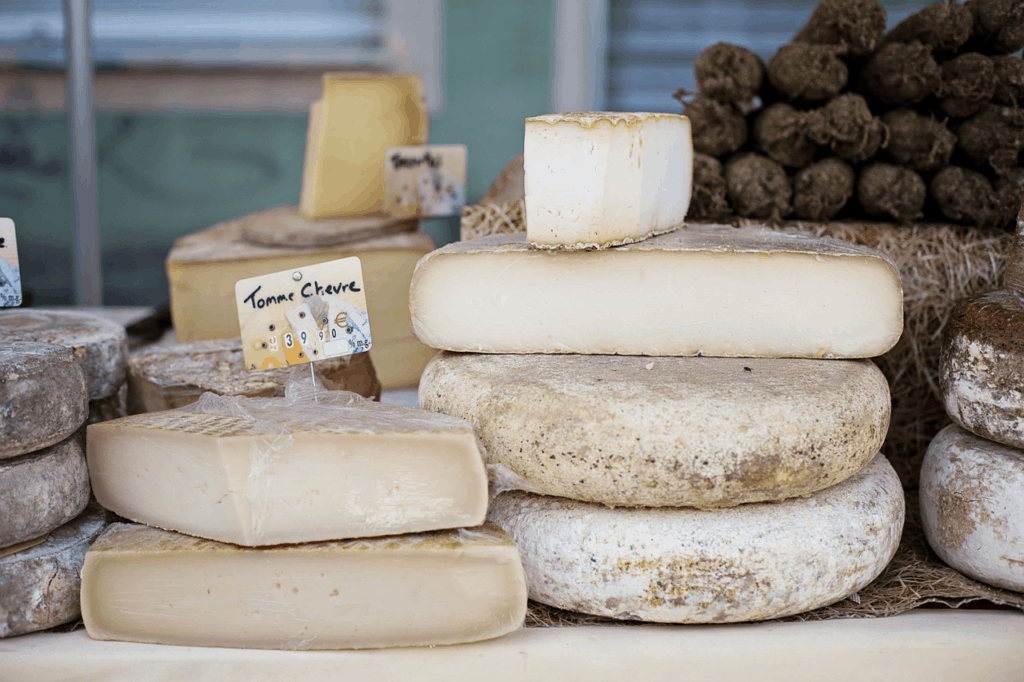
The 4 Types of Plant-Based Food Sources to Build Muscle
Some people tend to criticize veganism, falsely thinking that you basically just eat salad all the time. They also love to claim that you just can’t get the right balance of protein in your diet without meat. Wrong!
There is actually no evidence to show that a vegan would have significantly less intake of protein than the average American. As long as you eat the right stuff, it’s possible to consume enough.
Food is one of the simple pleasures in life, and veganism offers a new way of thinking about food. I mean, imagine removing meat and dairy from your diet—this makes up the majority of average food consumption. As a vegan, you really have to get creative, and discover ways to give your food a new lease of life!
When it comes to building muscle, what’s the key ingredient? Protein, of course! As a bodybuilder, you’ll need between 1 to 1.8 grams of protein per pound of body weight. This helps to keep your muscles and bones strong, as well as keeping the general workings of your body healthy.
Without meat and dairy, how can we achieve this? Well, we need protein substitutes.
1
Meat and Fish Substitutes
As veganism is growing in popularity, so are the potential substitutes available to us. In fact, vegan products are becoming more and more accessible. Some great meat-free alternatives include:
- Tofu, tempeh, and seitan: These are the very stereotypical meat substitutes, which might sound pretty awful. However, with the correct seasoning, you could be onto a winner here.
- Vegan burgers and sausages: In the supermarkets these days, just pop over to the freezer section and there’ll be tons of options available! For example, you can get bean burgers and jackfruit “pulled pork” burgers, among many others.
- Quorn: This is a classic meat substitute which isn’t actually all that bad! I frequently eat the “mince” and “chicken fillets” and, although they’re a little softer than meat, they taste pretty darn good.
2
Dairy Substitutes
Vegetarians are able to consume dairy products, such as cheese, eggs, milk, and more. That said, these items are strictly prohibited on a vegan diet. Therefore, these options might help you along:
- Vegan cheese: Sounds strange, right? Well, this is actually a great way to not only add protein to your diet but fuel those cheese cravings which may have stopped you from going vegan in the first place.
- Milk alternatives: The amount of milk substitutes available these days is second to none. These include, but are not limited to, almond milk, soy milk, cashew milk, and oat milk.
- Egg substitute: Believe it or not, these days, you can even get your hands on egg substitutes. This is usually made using our trusty friend, tofu. So I guess if this is a difficult loss for you, it’s not the end of the world.
3
Beans, Legumes, Pulses, and Nuts
In an average diet, these foods are pretty normal. What you may not know is that they are packed sky-high with protein. That means all you need to do is substitute your usual meat treats with these alternatives.
Some of these include black beans, lentils, chickpeas, walnuts, cashews, and so many more.
In actual fact, quite a number of these products can even be disguised as meaty foods. I’ve actually made a lentil bolognese —it’s completely vegan, delicious, and packed full of protein!
The possibilities are endless.
4
Supplements
Naturally, a vegan diet may not include all the vitamins, minerals, and extent of protein available in red and white meat needed for a fully healthy diet. If these are missing, your body will not thank you.
- Essential Amino Acids: In order for protein to be complete, it has to contain all the 9 essential amino acids that most plant-based proteins do not have.
- Creatine: provided by red meat. It is an important supplement to provide fast energy (ATP) for weight lifting.
- Iron: found in red meat, it enhances the immune system, and without this, the body will get weaker.
- Calcium: provided by dairy, is essential for bone density and strength, and important for muscle contraction.
- Vitamin B12: keeps the blood red cells and the body’s nerves healthy, and enhanced the mood and energy levels.
- Zinc: is a mineral, and affects the appetite and the testosterone levels in men.
With that in mind, vitamin supplements are a great way to ensure your body gets everything it needs to stay healthy.
Otherwise, protein powders, or plant-based protein bars are good ways to get that added boost to help your muscles build and repair as you go. This comes in an array of forms, like pea protein, soy protein, and hemp protein.
This powder could be mixed into a smoothie before working out, or perhaps sprinkled atop your morning cereal? As long as it’s making its way into your stomach, the benefits will follow.
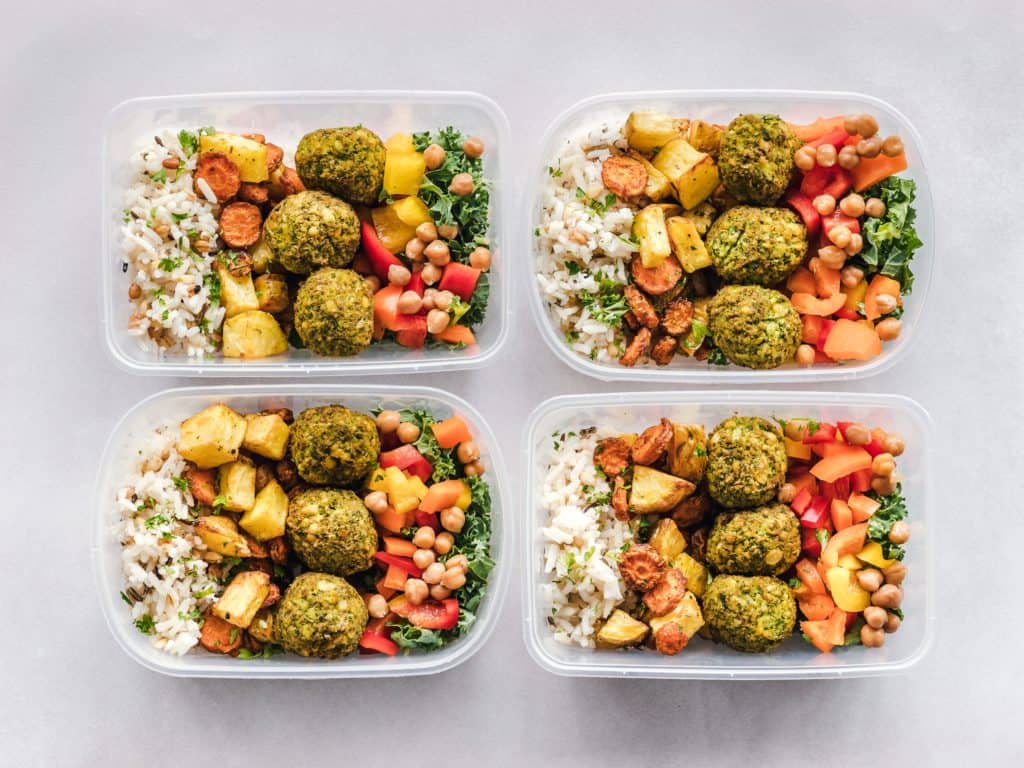
Two Tips for an Effective Vegan Diet to Build Muscle
Now that we know it’s totally possible to build muscle on a vegan diet, here’s more information to make sure you’re building muscle on a vegan diet:
1
Cut Back on Vegetables and Replace with Plant-Based Protein
I love vegetables. They taste great, are super nutritious, and fill you up nicely. That being said, for someone looking to bulk up, filling up on these lovely things is not the way.
If you’re constantly training, don’t be afraid to consume a lot more fatty and protein-filled items. Carbohydrates in vegetables have the same 4 calories as protein per 1 gram. You can replace your usual veggie side with nuts or beans. This way, you’ll fill up more on what your body needs to repair your muscles more effectively.
2
Meal Prep
The idea behind meal prep consists of giving yourself a couple of hours each week to plan your meals for the days ahead. By bulk cooking typical ingredients or meals you’d normally eat, it really has its benefits.
This means that you won’t slip up, as your food will be waiting for you in the fridge already. This is also a great way to ensure you get enough protein each day, as it should be pre-calculated during meal prep, so you can grab it and go.
“I don’t have time for this!” I hear you complain. Excuses, excuses.
Meal prepping can actually take you just a couple of hours during the weekend to set up, and then you’ll save yourself so much time during the week.
There are a ton of videos and examples online to get you inspired. I’ve found one here to start you on your journey:
I’ve done some of the hard work for you, so I don’t want to hear any more excuses!
Conclusion
So is it possible to build muscle on a vegan diet?
Yes, it is!
As long as you maintain a healthy amount of protein and vitamins within your diet, you’re good to go. This will ensure your body gets all the nutrients it needs to work properly, as well as allowing your muscles to grow and repair.
If you’re looking for ways to cut down your environmental impact on the earth, or save those animals from harm while still building muscle on a vegan diet, you can. It’s entirely achievable to live healthily and build your body at the same time.


